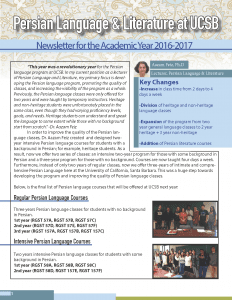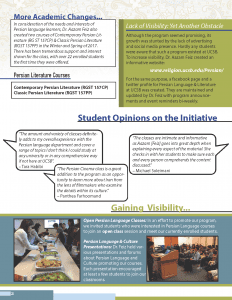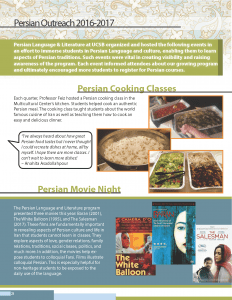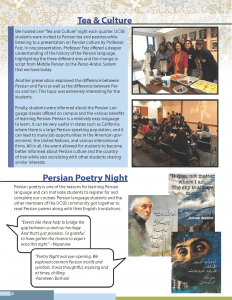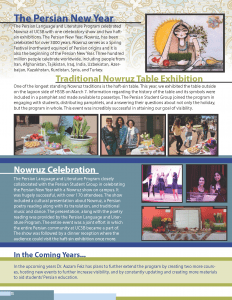Joseph Blankholm
About:
My research focuses on the variety among the nonreligious, including atheism and spirituality. My first book, The Secular Paradox: On the Religiosity of the Not Religious, was published by NYU Press in 2022. It’s an ethnography that relies on several years of fieldwork among very secular Americans to explain why being secular can feel so weirdly religious.
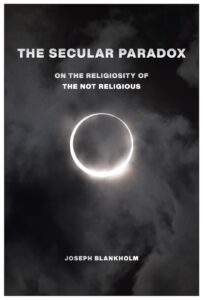 I’m currently writing a book about the secular and spiritual traditions that nonreligious people participate in, which is based on an intergenerational study of religion, spirituality, and values that was funded by a $2.8m grant from the John Templeton Foundation. The research was part of the Longitudinal Study of Generations, which sociologist Vern Bengtson began in 1970. This last wave included the fifth-generation descendants of the original participants.
I’m currently writing a book about the secular and spiritual traditions that nonreligious people participate in, which is based on an intergenerational study of religion, spirituality, and values that was funded by a $2.8m grant from the John Templeton Foundation. The research was part of the Longitudinal Study of Generations, which sociologist Vern Bengtson began in 1970. This last wave included the fifth-generation descendants of the original participants.
In the spring of 2021, I fielded the largest survey ever of organized nonbelievers in the U.S. (n=12,370). I’ve published an essay on the beliefs of nonbelievers that relies on the data, and I’m currently working on several other essays, including a study of secular feelings. In the past I’ve conducted research among born-again Christians in America and Zambia, especially Jehovah’s Witnesses, and I continue to be interested in how evangelicals and nonbelievers imagine one another.
I have several years of experience as an expert witness in civil and criminal cases. I’ve assessed whether a marijuana church is legally “religious,” and I’ve evaluated the role of religion during the formative years of defendants on death row.
Publications:
Blankholm, Joseph. Not Nothing: Who the Nonreligious Are and Why They Matter (under contract with W. W. Norton).
Blankholm, Joseph. “Reality Is Already Virtual: Lessons about Religion and Media from Teaching in Virtual Reality.” Forthcoming in New Media and New Religiosity: Dynamics of Religious Representation and Participation in a Mediatised Age, edited by Anna Hippert, Dunja SharbatDar, and Martin Rademacher (Bloomsbury Academic).
Blankholm, Joseph. “A Swinging Pendulum and Future Possibilities: A Response to ‘Exploring the Secular Paradox.’” Author’s response to a forum on The Secular Paradox. Secular Studies 7:1 (April 2025): 153–173.
Blankholm, Joseph. “There’s Something Queer about the Secular Paradox.” Author’s response to a symposium in a special issue on The Secular Paradox. Critical Research on Religion 13:1 (April 2025): 112-116.
Blankholm, Joseph, Ryan Cragun, Abraham Hawley Suárez, and Shakir Stephen “The Beliefs of Nonbelievers: Exclusive Empiricism and Mortal Finitude Among Atheists and Agnostics.” Forthcoming in Sociology of Religion 86:1 (Spring 2025): 27–49.
Blankholm, Joseph. “The Religiosity of the U.S. Nonprofit Sector and Its Impact on Secular Women.” In The Non-Religious and the State, edited by Jeffrey Tyssens, Niels de Nutte, and Stefan Schröder (De Gruyter, 2024), 167-182.
Brown, Maria T., Joseph Blankholm, Dusty Hoesly, Woosang Hwang, RianSimone Harris, and Merril Silverstein. “Intergenerational Evolution of Religiosity and Spirituality in Sexual Minorities in an American Sample.” In Religious and Spiritual Change and Continuity Across Generations: Passing on Faith in Six European and North American Nations, edited by Merril Silverstein, Christel Gärtner, and Maria Brown (Rowman & Littlefield, 2024), 157-193.
Hwang, Woosang, Joseph Blankholm, Dusty Hoesly, Maria T. Brown, RianSimone Harris, and Merril Silverstein. “Spiritual Beliefs and Practices of the Non-Religious in an American Context: A Cross-Generational Perspective.” In Religious and Spiritual Change and Continuity Across Generations: Passing on Faith in Six European and North American Nations, edited by Merril Silverstein, Christel Gärtner, and Maria Brown (Rowman & Littlefield, 2024), 195-218.
Blankholm, Joseph. “Foreword: The Frustrating and Wonderful Ambiguity of Secular Publics.” In Global Sceptical Publics: From Nonreligious Print Media to ‘Digital Atheism,’ edited by Jacob Copeman and Mascha Schulz (London: University College London Press, 2022), xv-xix.
Blankholm, Joseph. The Secular Paradox: On the Religiosity of the Not Religious. New York: New York University Press, 2022).
Blankholm, Joseph. “Feeling Out Alternatives Within Secularity.” Religion 51:4 (2021): 593-605.
Blankholm, Joseph. “Remembering Marx’s Secularism.” Journal of the American Academy of Religion 88:1 (March 2020): 35–57.
Blankholm, Joseph. “Self-Critique and Moral Ground: Saba Mahmood’s Contribution to Remaking Secularism and the Study of Religion.” Journal of the American Academy of Religion 87:4 (December 2019): 941–954.
Blankholm, Joseph. “Secularism and Secular People.” Public Culture 30:2 (May 2018): 245-268.
Blankholm, Joseph. “The Limits of Religious Indifference.” In Religious Indifference: New Perspectives From Studies on Secularization and Nonreligion, edited by Johannes Quack and Cora Schuh. (New York: Springer, 2017), 239-258.
Blankholm, Joseph. “Secularism, Humanism, and Secular Humanism: Terms and Institutions.” In The Oxford Handbook of Secularism, edited by Phil Zuckerman and John Shook (New York: Oxford University Press, 2017), 689-705.
García, Alfredo and Joseph Blankholm. “The Social Context of Organized Nonbelief: County-Level Predictors of Nonbeliever Organizations in the United States.” Journal for the Scientific Study of Religion 55:1 (March 2016): 70-90.
Blankholm, Joseph. “The Political Advantages of a Polysemous Secular.” Journal for the Scientific Study of Religion 53:4 (December 2014): 775-790.
Blankholm, Joseph. “No Part of the World: How Jehovah’s Witnesses Perform the Boundaries of Their Community.” ARC 37 (January 1, 2009): 197-211.
Courses Taught:
- RG ST 13: Religion and Popular Culture
- RG ST 35: Introduction to Religion and Politics
- RG ST 104: Problems in the Study of Religion
- RG ST 144A: Atheism
- RG ST 152: Religion in America Today
- RG ST 152VR: Religion and Technology (taught in virtual reality)
- RG ST 153: Metaphysical Spirituality
- RG ST 201: Core Issues in the Study of Religion
- RG ST 200SC: Secularism
- RG ST 200SP: Spirituality
- RG ST 243M: Materialism
- RG ST 280A: Methods in the Study of Religion












